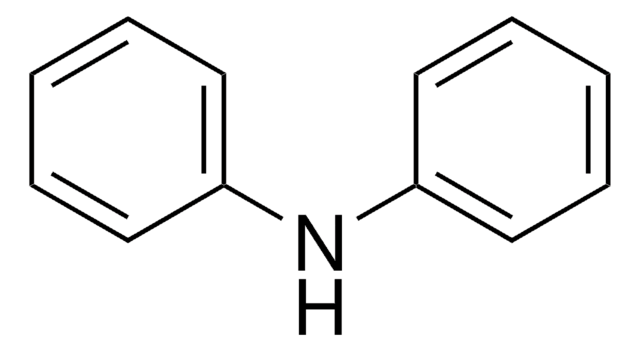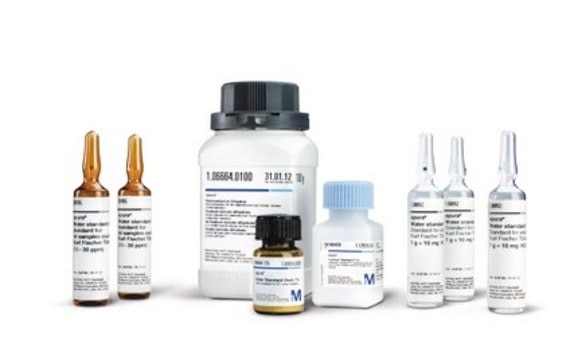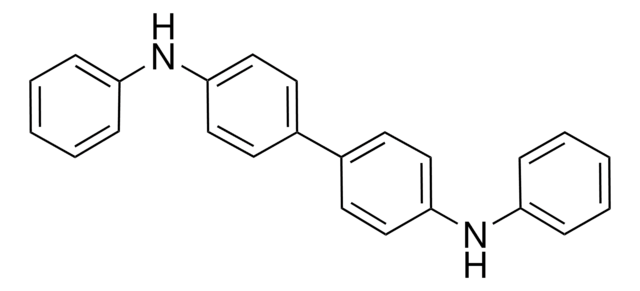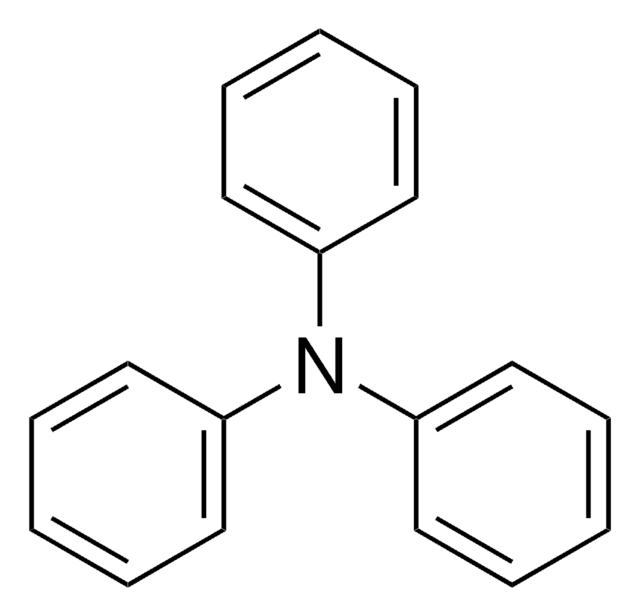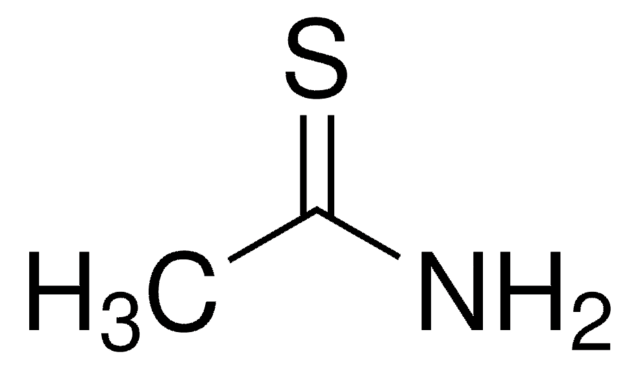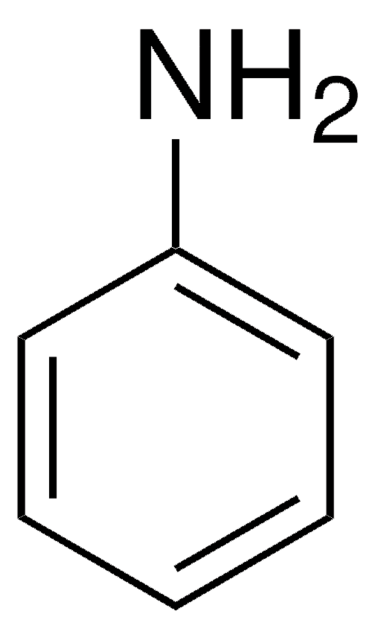8.20528
Diphenylamine
for synthesis
Synonym(s):
Diphenylamine, N-Phenylaniline
About This Item
Recommended Products
vapor pressure
0.0003 hPa ( 20 °C)
Quality Level
assay
≥99.0% (GC)
form
solid
autoignition temp.
630 °C (DIN 51794)
potency
1120 mg/kg LD50, oral (Rat)
>5000 mg/kg LD50, skin (Rabbit)
bp
302 °C/1013 hPa
mp
53-54 °C
transition temp
flash point 153 °C (DIN 51758)
solubility
0.05 g/L
density
1.16 g/cm3 at 20 °C
bulk density
610 kg/m3
storage temp.
no temp limit
InChI
1S/C12H11N/c1-3-7-11(8-4-1)13-12-9-5-2-6-10-12/h1-10,13H
InChI key
DMBHHRLKUKUOEG-UHFFFAOYSA-N
Application
- Design of hole transport materials: New small derivatives of 2,2′-bithiophene, possibly involving Diphenylamine as a building block, were rationally designed to improve the performance of perovskite solar cells, demonstrating Diphenylamine′s role in advancing photovoltaic technology (Adadi et al., 2024).
- High-efficiency hyperfluorescent OLEDs: Diphenylamine may be implicated in the development of hybridized local and charge transfer dendrimers, aimed at achieving near-unity exciton utilization in solution-processed OLEDs, highlighting its potential in high-performance electronic displays (Yin et al., 2024).
- Chemical detection technologies: A benzoxazole-triphenylamine conjugated fluorogenic probe was developed for the specific detection of sarin gas mimic diethylchlorophosphate, illustrating Diphenylamine′s utility in sensitive and specific chemical sensors (Sultana et al., 2024).
- Electrochemiluminescence emitters: Diphenylamine-based emitters were tailored for efficient electrochemiluminescence, employing tripropylamine as a co-reactant, contributing to the field of electrochemical sensors and displays (Morgan et al., 2023).
- Near-infrared fluorophores development: Research on chlorinated rylenecarboximide fluorophores, potentially involving Diphenylamine, focused on efficient near-infrared applications, which are critical for advanced imaging and diagnostic techniques (Wu et al., 2023).
Analysis Note
Melting range (lower value): ≥ 52 °C
Melting range (upper value): ≤ 55 °C
Identity (IR): passes test
signalword
Danger
Hazard Classifications
Acute Tox. 3 Dermal - Acute Tox. 3 Inhalation - Acute Tox. 3 Oral - Aquatic Acute 1 - Aquatic Chronic 1 - STOT RE 2
Storage Class
6.1C - Combustible, acute toxic Cat.3 / toxic compounds or compounds which causing chronic effects
wgk_germany
WGK 3
Certificates of Analysis (COA)
Search for Certificates of Analysis (COA) by entering the products Lot/Batch Number. Lot and Batch Numbers can be found on a product’s label following the words ‘Lot’ or ‘Batch’.
Already Own This Product?
Find documentation for the products that you have recently purchased in the Document Library.
Customers Also Viewed
Protocols
Straightforward HPTLC-MS analysis of lactose in dairy products (milk or yoghurt) using only protein crash, centrifugation and dilution as sample preparation.
Our team of scientists has experience in all areas of research including Life Science, Material Science, Chemical Synthesis, Chromatography, Analytical and many others.
Contact Technical Service